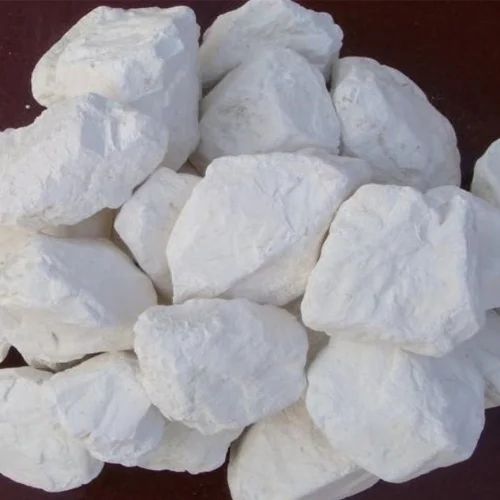Company Information
Ask for more detail from the seller
Contact Supplierthis article will delve into the fascinating world of China clay, unveiling its origins, properties, and wide-ranging uses across different sectors.
Have you ever wondered about the fascinating world of minerals that surrounds us? One such remarkable mineral is China Clay, also known as kaolin.
This unassuming substance plays a significant role in various industries, impacting our lives in more ways than we might realize.
What is China Clay?
China Clay, scientifically known as kaolin, is a soft, white clay mineral that originates from the decomposition of feldspar.
It is predominantly found in regions with a history of volcanic activity, where the intense heat and pressure cause the feldspar mineral to break down and transform into the fine particles of kaolin.
The most abundant deposits are in China (hence the name), the United States, Brazil, and the United Kingdom.
Origins and Formation of China Clay
China clay originates from the natural weathering of feldspar-rich rocks, predominantly granite.
Over millions of years, the combination of water, temperature changes, and chemical processes breaks down these rocks into fine particles, resulting in the formation of kaolin deposits.
Kaolin’s Properties
Kaolin boasts an array of unique properties that make it a versatile and sought-after material across various industries:
Texture and Color: China Clay is known for its creamy-white color and smooth surface. These characteristics, coupled with its fine particle size, make it a popular choice in industries that require refined materials.
Inert Nature: One of the most remarkable attributes of kaolin is its inertness. It is chemically stable and non-reactive with most substances, which makes it safe for various applications.
High Plasticity: In ceramic production, the plasticity of clay is crucial. China Clay’s high plasticity makes it an ideal component for shaping and molding ceramics.
Heat Resistance: Kaolin exhibits exceptional heat resistance, making it suitable for applications involving exposure to high temperatures.
A Canvas of Applications in the Ceramics Industry
In the realm of ceramics, china clay plays a pivotal role. Its remarkable ability to remain stable at high temperatures makes it an indispensable ingredient in producing porcelain, earthenware, and other ceramics.
The clay’s fine particle size lends a smooth texture to the finished products, contributing to their strength and exquisite finish.
Porcelain Production: The Elegance of China Clay
Often associated with luxury and refinement, porcelain owes its elegance to china clay. The clay’s purity and plasticity allow artisans to shape intricate designs, and its white color acts as a pristine canvas for decorative glazes.
The result is a timeless beauty that has graced tables and homes for centuries.
Earthenware and Beyond
Beyond porcelain, china clay is utilized in crafting earthenware. Its addition enhances the workability of the clay mixture, reduces shrinkage during firing, and prevents warping, ultimately leading to durable and aesthetically pleasing pottery.
The Paper Industry: Enhancing Quality and Printability
China clay’s remarkable properties extend their influence on the paper industry. As a filler material, it improves paper’s opacity, smoothness, and printability. When incorporated into the paper-making process, it enhances the overall quality of the end product.
Opacity and Coating
In paper production, opacity is crucial to prevent text from bleeding through. China clay’s fine particles scatter light effectively, giving the paper the opacity needed for clear and legible text. Moreover, it’s used in coating formulations to produce glossy, high-quality paper for printing purposes.
Smoothness and Ink Adhesion
The smooth surface of china clay-coated paper ensures that ink is applied evenly and adheres well. This results in sharp and vibrant printed images, making china clay an essential component in producing magazines, catalogs, and high-end publications.
Sculpting Beauty in the Cosmetics Industry
The cosmetic industry harnesses the skin-friendly properties of china clay. Its fine texture, absorbent nature, and natural origin make it a popular ingredient in skincare and makeup products.
Natural Cleansing and Exfoliation
China clay’s absorbent qualities make it an effective cleanser and exfoliator. It gently removes impurities from the skin, leaving it fresh and revitalized. Various masks and cleansers utilize their unique properties to deliver a rejuvenating experience.
Mattifying Magic
In cosmetics like foundations and powders, china clay’s ability to absorb excess oil gives the skin a matte finish. This makes it a favorite among those with oily skin, offering a solution for a shine-free look that lasts.
Beyond Art: Industrial and Technological Applications
The applications of china clay extend into industries that rely on its exceptional properties to achieve specific results.
Rubber and Plastics
In the rubber and plastics industry, china clay is used as a reinforcing filler, enhancing the mechanical properties of these materials. It improves stiffness, strength, and resistance to wear and tear.
Catalyst Support
The catalytic industry employs china clay as a support material for catalysts. Its large surface area and ability to maintain its structure at high temperatures make it an ideal substrate for various chemical reactions.
Paint and Coatings
China clay’s ability to disperse uniformly in liquids makes it a valuable ingredient in paint and coatings. It contributes to stability, texture, and opacity, ensuring consistent and high-quality finishes.
Sustainable Future: China Clay in Green Technologies
As the world approaches sustainability, china clay has found its place in green technologies.
Battery Technology
China clay is explored as a potential material for battery electrodes due to its high surface area and electrical conductivity. This innovation could lead to more efficient and eco-friendly energy storage solutions.
Water Purification
China clay’s adsorption properties are harnessed in water treatment to remove pollutants and contaminants from water sources. It’s the natural origin, and efficiency makes it an appealing choice for sustainable purification.



